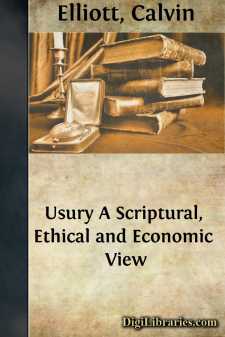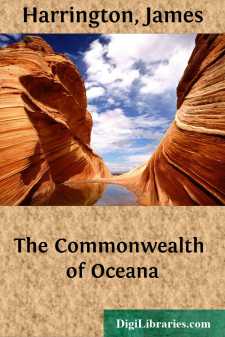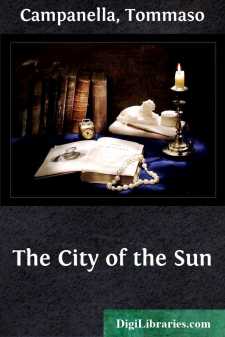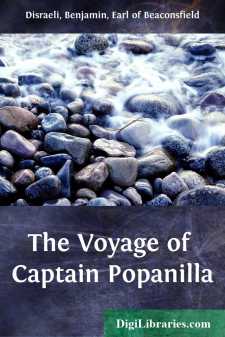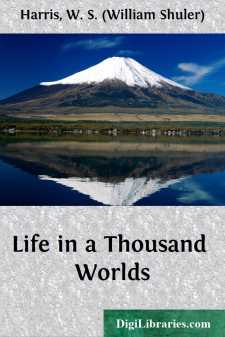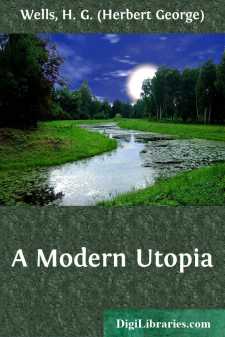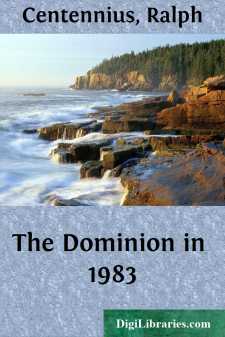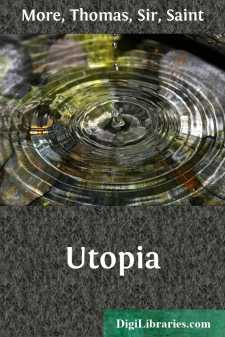Non-Classifiable
- Non-Classifiable 1768
Non-Classifiable Books
Sort by:
by:
Calvin Elliott
DEFINITION. In the evolution of the English language, since the making of our King James version of the Bible, many new words have been introduced, and many old ones have changed their meanings. In the nearly three hundred years the Saxon word "let," to hinder, has become obsolete. It was in common use and well understood when the version was made, but is now misleading. Thus we have in Isaiah...
more...
by:
James Harrington
INTRODUCTION TO OCEANA JAMES HARRINGTON, eldest son of Sir Sapcotes Harrington of Exton, in Rutlandshire, was born in the reign of James I, in January, 1661, five years before the death of Shakespeare. He was two or three years younger than John Milton. His great-grandfather was Sir James Harrington, who married Lucy, daughter of Sir William Sidney, lived with her to their golden wedding-day, and had...
more...
A Poetical Dialogue between a Grandmaster of the Knights Hospitallers and a Genoese Sea-Captain, his guest. G.M. Prithee, now, tell me what happened to you during that voyage? Capt. I have already told you how I wandered over the whole earth. In the course of my journeying I came to Taprobane, and was compelled to go ashore at a place, where through fear of the inhabitants I remained in a wood. When I...
more...
CHAPTER 1 There is an island in the Indian Ocean, so unfortunate as not yet to have been visited either by Discovery Ships or Missionary Societies. It is a place where all those things are constantly found which men most desire to see, and with the sight of which they are seldom favoured. It abounds in flowers, and fruit, and sunshine. Lofty mountains, covered with green and mighty forests, except...
more...
Are There More Worlds Than One? Our world is large enough to excite our interest and invite our study until we close our eyes in death. Yet there are countless other orbs scattered through the solar system and throughout the vast stretches of the starry heavens. Some of these worlds are smaller than ours, but the majority of them are hundreds or thousands of times larger. Looking away from our solar...
more...
CHAPTER I. One pleasant afternoon in the month of May, 19—, I launched my boat, and after rowing about half a mile from shore I shipped my oars, stepped the mast, hoisted sail and reclining on a cushioned seat at the stern with my hand on the tiller, I waited for a breeze to spring up, and whilst so doing I fell asleep. How long I slept I know not, for when I awoke my boat was close to shore, and to...
more...
This book is in all probability the last of a series of writings, of which—disregarding certain earlier disconnected essays—my Anticipations was the beginning. Originally I intended Anticipations to be my sole digression from my art or trade (or what you will) of an imaginative writer. I wrote that book in order to clear up the muddle in my own mind about innumerable social and political questions,...
more...
by:
Ralph Centennius
I. "Before the curing of a strong disease, "Even in the instant of repair and health, "The fit is strongest; evils that take leave, "On their departure most of all show evil." —King John, Act III. In the present advanced and happy times it is instructive to take a retrospective glance at the days of our forefathers of the...
more...
by:
Francis Bacon
INTRODUCTORY NOTE Bacon's literary executor, Dr. Rowley, published "The New Atlantis" in 1627, the year after the author's death. It seems to have been written about 1623, during that period of literary activity which followed Bacon's political fall. None of Bacon's writings gives in short apace so vivid a picture of his tastes and aspirations as this fragment of the plan of...
more...
INTRODUCTION Sir Thomas More, son of Sir John More, a justice of the King’s Bench, was born in 1478, in Milk Street, in the city of London. After his earlier education at St. Anthony’s School, in Threadneedle Street, he was placed, as a boy, in the household of Cardinal John Morton, Archbishop of Canterbury and Lord Chancellor. It was not unusual for persons of wealth or influence and sons of...
more...


